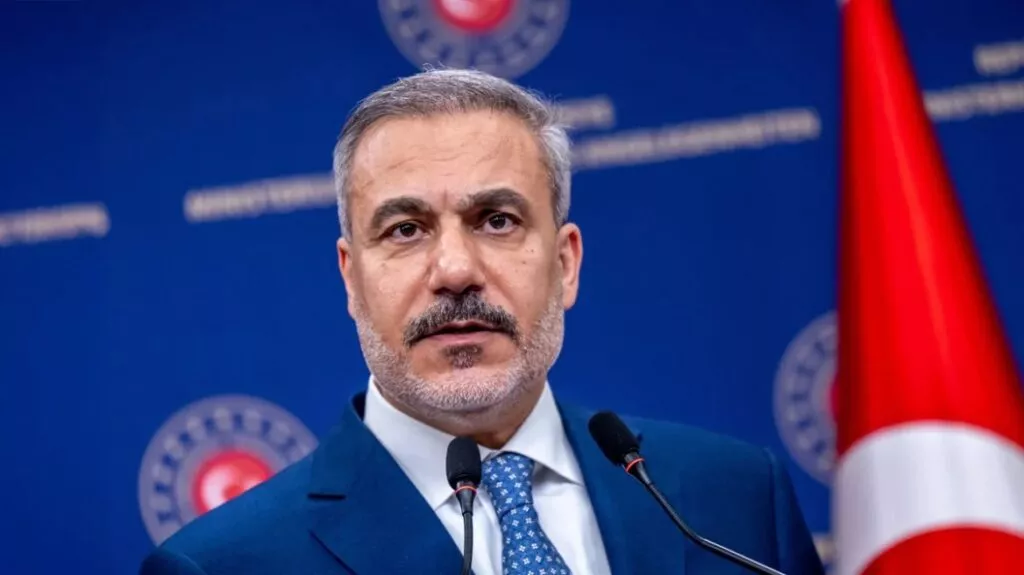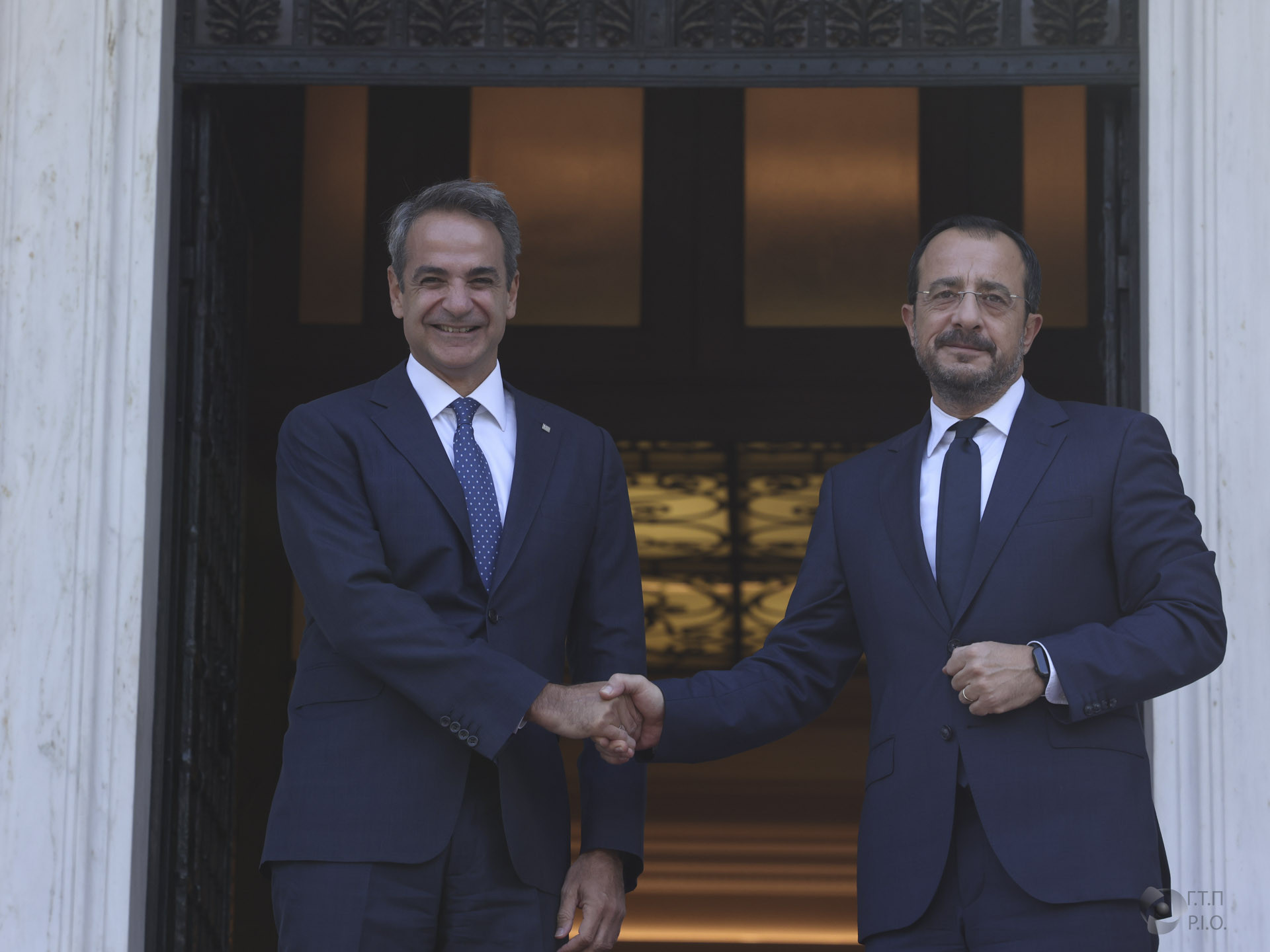Turkish Foreign Minister Fidan uses ‘pressure and diplomacy’ rhetoric in Greece relations
Source: in-cyprus.com
Ankara is adopting a combined rhetoric of pressure and diplomatic imposition in its relations with Greece, according to the line presented by Foreign Minister Hakan Fidan.
The head of Turkish diplomacy spoke last night on the pro-government TV station ULKE TV. On one hand, he “chided” Greece for aggressive rhetoric against Ankara, while on the other, he pointed out that the differences between the two countries can be resolved through dialogue and peaceful means.
Fidan included the Aegean in these differences, characteristically stating: “In the language of peace, because the issue is really very simple. I do not accept 12 miles, you do not accept 6 miles. So, we stand at certain points, exploratory talks have taken place in the past, some distance has been covered. The Aegean issue is not an insurmountable problem. As long as there is the will, this problem can be solved.”
He continued: “But everyone is afraid: ‘If I solve this problem, will it perhaps cost me power?’ This is the problem in Greece. So, let’s say, the [government in] Greece overcomes this and says: ‘Okay, regardless of the fear for my power, by solving a problem with Turkey, I will also do good for my own country’.”
“We hope that we will have the opportunity to do this while Mr. Mitsotakis is in power. Frankly, I think he sincerely wants to,” Fidan added.
In the same interview, however, and referring to Greece-Turkey relations regarding the European Union’s SAFE programme, Fidan attacked Greece, saying: “Europe’s security system has been captured by one or two countries, such as Greece. These countries have nothing to do with the security of Europe.”
The Turkish Foreign Minister also made a reference to Greece’s readmission to NATO in 1980, after its withdrawal following the Turkish invasion, saying that “even then, Turkey accepted it. It could have not accepted it.”
“Greece pursues an active and consistent foreign policy based on the universal values of international law and is not externally determined,” Foreign Minister George Gerapetritis underlined in a statement, responding to his Turkish counterpart’s accusations.
“It will not deviate from these principles, and anyone who is bothered by this must accept it, because suggestions and reproaches are not acceptable. Greece is actively pursuing peace and good neighbourly relations. However, there can be no discussion on matters of national interest,” he added.
Excerpts from Fidan’s interview on Greek-Turkish relations:
“Our President gives an opportunity to every elected Prime Minister of Greece. There is no one he has not given one to. Our President is the only person with the political legitimacy who can solve the problems between Turkey and Greece, Turkey and Cyprus. I say this based on a realistic political analysis. The Greeks know this, the Cypriots know this, everyone knows it. In Greece, no political legitimacy is strong enough to end the problems with Turkey.”
“Greek politics is fuelled by anti-Turkish sentiment. Let’s say there’s a corruption case domestically; they immediately pull out the Turkey card. A mistake was made domestically, demonstrations began, they bring Turkey onto the agenda. I want to address them from here too: the Turks and the Greeks are the ancient peoples of the region. That is, we must get out of this deadlock. The future awaits us. So let’s sit down and discuss our existing problems in a civilised manner. If you continue to use threatening language, Turkey will reciprocate ten times more. There is no reason for this. Let’s not build our politics on this basis. Do we in Turkey build our politics on anti-Greek positions? Do we talk about Greece day and night? Why do you do this?”
“The fact that the Prime Minister of Greece boasts in the Greek Parliament about how they will not accept Turkey into the SAFE programme to defend himself is a subject that should be taught. Europe’s security system has been captured by one or two countries, such as Greece. These countries have nothing to do with the security of Europe. As you know, Greece withdrew from NATO’s military pact in 1974 and returned in 1980. Turkey accepted it then. It could have not accepted it.”
“The meeting of the Council of Ministers of the European Union will take place in Luxembourg on Monday. We are invited. We hope to go there. Our Greek colleague (i.e., George Gerapetritis) asked us to hold a meeting there. Frankly, I don’t think our Greek colleagues, our interlocutors, are very satisfied with this matter.”
“Because politics is based on hostility towards Turkey, that is, people there are compelled to say some things to defend themselves. But when these words turn into actions, we closely monitor that. Neither the anti-Turkish initiatives in Europe nor the efforts in the Eastern Mediterranean escape our attention. We have incredibly good opportunities to solve these in peaceful ways. The will exists, let’s solve these problems. That is, if we continue to use threatening language with each other, it will not end well.”
“Look, we are not the first country to start speaking this language. You use this language. When you use this language, do not expect to be answered in another language. But we will never be the first to start. Our first language is greeting, peace. Come, let’s reconcile, let’s sit down, let’s talk. This is our President’s method.”
“I do not accept 12 miles, you do not accept 6 miles, these can be discussed… at certain points… these were discussed with the exploratory talks, they advanced to some points. The problem in the Aegean is not a problem that cannot be solved.”
“Everyone is afraid of the following: If I solve a certain problem, will it have a political cost? This is the problem in Greece. We hope that, while Mr. Mitsotakis is in power, we will have the opportunity to do this.”
“As you know, Cyprus was one of the two countries that hosted the genocide in Gaza. Now they are thinking of restoring that image with air transport. We hope that this will atone for their sins, that is, now by providing humanitarian aid. But as you know, the planes that took off from Cyprus caused the death of many Palestinians.”
(Information from protothema.gr)
The original article: belongs to in-cyprus.com .




